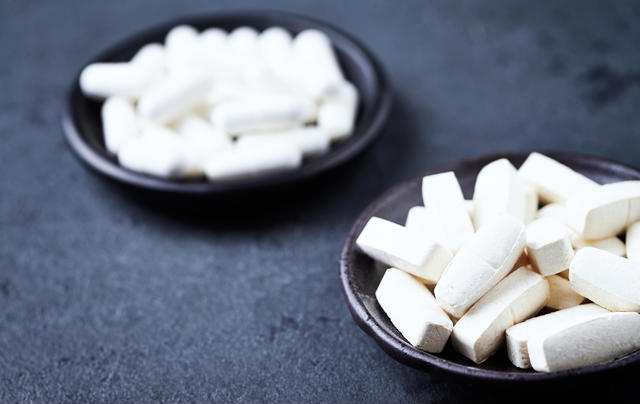
Isoleucine at a Glance
Isoleucine is a branched-chain amino acid (BCAA) present in dietary protein. It is often used in amino acid mixes usually taken by weightlifters, athletes, and people who are physically active.
As one of the building blocks of life, isoleucine is responsible for manufacturing proteins that your body uses to build tissues and lean muscles. It also contributes to the repair, recovery, and rebuilding of muscles after intense physical activity.
What sets it apart from other BCAAs is its ability to boost energy during intense physical activities. It fuels your skeletal muscles when you workout or partake in sports activities.
It is an essential amino acid that the body cannot produce on its own and should, therefore, be sourced through your diet or through supplements.
Some food sources of isoleucine include eggs, dairy products, spirulina, turkey, chicken, lamb, grass-fed beef, seafood, watercress, chard, lentils, black beans, pinto beans, and sesame seeds. You can also take dietary supplements to fulfill your daily recommended dose of isoleucine.
How It Works

It is also known for its role in physiological functions such as wound healing, stimulating immune function, and promoting the secretion of several hormones. It also plays a role in the synthesis of hemoglobin which helps carry oxygen from the lungs to the body’s tissues.
This amino acid plays a key role in the regulation of energy and blood sugar levels. It promotes glucose uptake in the muscle cells where it is broken down by the body into an efficient fuel source. This energy is the key to enhancing athletic performance.
Isoleucine Benefits
- Isoleucine lowers glucose levels in the body. A study in Japan concluded that oral administration of isoleucine helps decrease the levels of glucose in blood plasma. This stimulates the uptake of insulin-dependent glucose in skeletal muscles.
- It also helps reduce skeletal muscle damage resulting from intense physical activity. Studies have shown that this BCAA helps reduce muscle soreness especially when taken before a workout.
- Research also suggests that BCAAs reduce post-workout fatigue and boost athletic performance during exercise. It limits the uptake of tryptophan in the brain resulting in the reduction of exhaustion and in the improvement of physical and mental performance.
Dosage Recommendations

The recommended daily dose for isoleucine supplements is 1000 mg to 2000 mg per day. If your goal is to build muscle mass, you might want to consider taking it with other BCAAs at a ratio of 2:1:1 valine, leucine, and isoleucine.
Safety Considerations
Excessive intake of BCAAs like isoleucine may lead to nausea, vomiting, diarrhea, stomach bloating, fatigue, and loss of coordination.
It is also not recommended to take high doses of amino acids for long periods since it can lead to negative nitrogen balance in the body.
If you are pregnant or breastfeeding, you should not take this supplement.
As with any dietary supplement, it’s best to consult a physician before taking isoleucine.




